- Harm reduction was top notch at Shambhala but the festival could have done a bit more.
- Early psychedelic experiences added substantial depth to her yoga practice and art.
- Marisa has helped us at Psychedelics Today a ton and we are very excited to keep working with her.

Show Notes
- Martian Curiosities - Instagram
- Shambhala Festival in BC
- An electronic music festival with different producers coordinating music and art for each stage.
- No alcohol is allowed at the festival.
- Almost promoted as a psychedelic-friendly festival.
- The biggest win for the festival this year - no fentanyl found in any of the drugs tested.
- Marisa's favorite part about Shambhala is the people/community.
- Shambhala provides harm reduction/drug testing services.
- Drug testing is done by ANKORS.
- ANKORS also provides drug safety information.
- Drug testing helps to clean up the scene because people understand what is found in their substances.
- Drug testing is illegal or not allowed in the United States
- Marisa did some outreach for Psychedelics Today at Shambhala festival to promote drug safety, harm reduction, and our course Navigating Psychedelics
- Marisa's favorite artists at Shambhala
- Marisa's introduction to psychedelics
- Cosmic Trigger by Robert Anton Wilson
- What would it look like if festivals provided integration services to help process the overall festival experience?
Links
Check out this FREE online course, "Introduction to Psychedelics"
About Marisa Novy
 I am Marisa, a 24 year old explorer of consciousness and purpose of life. I graduated UW-Milwaukee with a BBA in Marketing and International Business with an emphasis in Entrepreneurship. I grew up making art, and for the most part, I am constantly creating. I have my own small creative business for my artwork at MARtianCuriosities on Etsy, and @martiancuriosities on Instagram for more consulting projects. I became interested in Psychedelics after reading some cosmic literature, delving deeper into my yogic practice, and through my search for meaning and enlightenment. Psychedelics have helped my creativity to blossom and to be my truest self.
I am Marisa, a 24 year old explorer of consciousness and purpose of life. I graduated UW-Milwaukee with a BBA in Marketing and International Business with an emphasis in Entrepreneurship. I grew up making art, and for the most part, I am constantly creating. I have my own small creative business for my artwork at MARtianCuriosities on Etsy, and @martiancuriosities on Instagram for more consulting projects. I became interested in Psychedelics after reading some cosmic literature, delving deeper into my yogic practice, and through my search for meaning and enlightenment. Psychedelics have helped my creativity to blossom and to be my truest self.
- The history of MDMA is different than we have been taught.
- MDMA is quite safe and the harms are very low. Risk reduction is a more appropriate term at times.
- Emanuel is positive that his early drug experiences substantially helped improve his life.

Show Notes
- There is an largely unknown history of MDMA.
- Sasha Shulgin apparently was not the first to synthesize it in the modern era.
- He created a new synthesis method.
- MDMA was the first designer drug in a sense.
- MDA became illegal and chemists decided to change the molecule
- Manuel Noriega of Panama used MDMA at least once and gave permission to some chemists to manufacture in Panama shortly before the US invasion.
- Harms from MDMA are quite minimal and small.
- Parents who have lost a child can be natural allies to the drug positive movement.
- Best practices for drug testing MDMA and Cocaine.
- It is going to be really hard to convince the public to legalize drugs other than cannabis.
About Emanuel Sferios
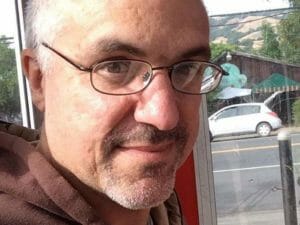 Emanuel Sferios is an activist, educator and harm reduction advocate. Founding DanceSafe in 1998 and starting the first laboratory pill analysis program for ecstasy users that same year (now hosted at Ecstasydata.org), Emanuel pioneered MDMA harm reduction services in the United States. His MDMA Neurochemistry Slideshow has been viewed over 30 million times and remains a primary educational resource for physicians, teachers, drug abuse prevention counselors and MDMA users alike. Emanuel resigned from DanceSafe in 2001 and went on to work in other areas of popular education and harm reduction. He has recently come back as a volunteer. Oh! And he’s making a movie.
Emanuel Sferios is an activist, educator and harm reduction advocate. Founding DanceSafe in 1998 and starting the first laboratory pill analysis program for ecstasy users that same year (now hosted at Ecstasydata.org), Emanuel pioneered MDMA harm reduction services in the United States. His MDMA Neurochemistry Slideshow has been viewed over 30 million times and remains a primary educational resource for physicians, teachers, drug abuse prevention counselors and MDMA users alike. Emanuel resigned from DanceSafe in 2001 and went on to work in other areas of popular education and harm reduction. He has recently come back as a volunteer. Oh! And he’s making a movie. Links
Drug Positive Independent - Meet the Man Who Wants your to Him him Legalise MDMA DanceSafe - Wiki DanceSafe MDMA The MovieIntroduction
During this episode of Psychedelics Today, your host Kyle Buller interviews Robin Kurland-West, a licensed marriage and family therapist based out of California. Kyle and Robin chat about challenges and other questions in regard to providing psychedelic integration services. Psychedelic integration is a new territory, and there are plenty of questions to still answer and cover.
Show Notes
About Robin Kurland-West
- She offers integration services through her therapy practice.
- Robin had questions about how to create an introduction practice and how to follow up.
- She was licensed in 2010 and graduated from the California Institute of Integral Studies in 2006.
- About a year ago she decided to do a karma cleanse and began to talk to a friend about psychedelics.
- Her friend sent her a podcast that spoke to her.
- She was doing some shadow work and dealing with her addiction experiences.
- She said a prayer over the psilocybin and was open to what it would show her.
- A spirit appeared and the forest started sending her messages.
- It was a female spirit and used two trees to illustrate the inside of her brain.
- It taught her that her mind was holding onto negative beliefs.
- She taught her that she needed to let go, that it was “all so absurd.”
- What has been the difference between experimenting in college vs. doing the work as an adult?
- In college, it was seen as a party drug.
- She had a hard time having conversations with people.
- She doesn’t see it as a party drug anymore, it’s something that you honor.
- She now views it as a medicine that heals parts that have been cut off.
- Having had a history of addiction, some people are afraid psychedelics might be addictive.
- Psychedelics are non-addictive because other drugs are about escaping, and psychedelics are about being fully present.
- What is integration work for you and how do you approach it?
- This is new territory for her after having her own experience.
- She joined a network called the psychedelic support network.
- Because it’s not yet legal, it’s a bit of a struggle.
- She offers pre and post ritual services.
- People meet with her and do a pretty thorough assessment.
- They set the intention for the experience.
- Afterward they look at what some of the messages were and how to incorporate it into their daily lives.
- Do you help with dosage?
- She focuses more on intention setting because she’s still new at this.
- She refers people to resources to help with other things.
- Is there a therapeutic approach you use with people?
- She uses expressive arts therapy to tap into the unconscious and subconscious.
- She always uses family systems, there’s usually a root to behavior.
- She uses CBT and DBT.
- She uses journaling and narrative therapy.
- It’s an opportunity to rewrite your story - a new perspective to an old story.
- She uses mandala work and drawing.
- She has them stand up and move around.
- Utilizing movement to integrate is huge.
- After having her profound experience with psychedelics, she finds it to be a warm blanket she can reach for to remind you that things are different now.
- What type of challenges have you had providing integration services to people?
- She wants to know how soon she should see a client after they start on this journey.
- How many times should she see a client after, and how many times?
- It could be more individual.
- She started to do psychotherapy to go deep and heal.
- It’s possible to put your medical license at risk by providing certain services.
- She can’t sit with people when they have their experience and has to be clear that it’s a decision that they’re making.
- She has to detach herself from a lot of it.
- She likes the idea of immediacy in following up with clients.
- She sees a client 3-4 times beforehand to make sure they’re healthy enough and set intention.
- Afterward she wants to see them soon so they can hold onto the gold they discovered in the journey.
- How do you choose the right psychedelic experience for a person?
- The idea of doing a diagnosis to find out what will work is tricky.
- Throw it back on the person to see what they’re looking for.
- It’s not a scary experience, but you want to make sure you’re with someone who’s trained.
- There’s a couple that wants to come in and do integration therapy together.
- She wants to meet with them individually and together beforehand.
- People are in therapy to discover themselves and they might find something different than they’ve been looking for.
- How do you approach people who think integration specialists can get them drugs or be a guide during experiences?
- She says it isn’t about her telling them to use illicit drugs and she doesn’t do drugs with them or hook them up.
- The difference between integration therapy and a guide:
- A guide is someone you trust who sits with you.
- An integration therapist is just pre and post where she’s not involved in the drug.
- Have you had any clients reach out trying to integrate a really difficult experience?
- Not yet, but she’s looking forward to it.
- She would ask questions about what they saw and felt.
- She would bring in the arts to map it out and they can look at it together.
- You can have a psychedelic experience without having psychedelics.
- Is there anything you’re looking forward to with clients?
- In traditional therapy right now, she’s coming up against blockage in some of her clients.
- She sees a lot of people being stuck, and that’s the hardest part.
- She’s excited to see the light turn back on in people’s eyes and see them be healed.
- She wants to see people be present with themselves and each other so they can have a fuller life.
- How do you approach therapy and coaching?
- She just does the psychotherapy, asking questions.
- She appeals to a clients inner resources.
- Do you do any online work?
- She only does in-person work, every once in a while she does a phone session.
- She works holistically, so people don’t just focus on the mind, also the body and the spirit.
- Do you get people reaching out from all over the place?
- Yes, because her name is on the psychedelic support list.
- She filled out an application and had some correspondence with the organization.
- What are some of your favorite podcasts and resources?
- The Psychedelic Salon Podcast
Episode Quotes
- I don’t see psychedelics as a party drug anymore, it’s something that you honor, a medicine.
- I like to see my clients soon after their experience so they can hold onto the gold they discovered on their journey.
- People are in therapy to discover themselves and they might find something different than they’ve been looking for.
Resources Mentioned
So, You Want to Find a Psychedelic Guide - Article Psychedelics Today Episode with Katherine MacLean Joe Rogan Experience interviewing Amber Lyon 8 Common Psychedelic Mistakes Course Erowid Archive The Psychedelic Explorer’s Guide - Risks, Micro-Dosing, Ibogaine, and MoreAbout Robin Kurland-West, LMFT
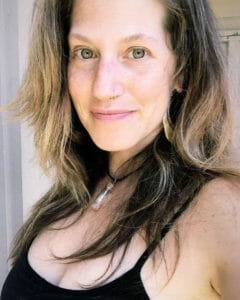 Robin Kurland-West received her license in 2010. Prior to becoming licensed she has worked in non profit agencies and inpatient recovery centers as clinical director, supervisor and lead therapist. Through this journey she has focused her expertise on trauma and addictions. Currently Robin has a private practice in the Sacramento area and works with individuals, families, couples and groups. Her passion to explore consciousness and the healing potential of psychedelics has been prominent through out and is committed to making a difference with those suffering from PTSD and addictions through the use of plant medicines and psychedelic integration therapy.
Robin Kurland-West received her license in 2010. Prior to becoming licensed she has worked in non profit agencies and inpatient recovery centers as clinical director, supervisor and lead therapist. Through this journey she has focused her expertise on trauma and addictions. Currently Robin has a private practice in the Sacramento area and works with individuals, families, couples and groups. Her passion to explore consciousness and the healing potential of psychedelics has been prominent through out and is committed to making a difference with those suffering from PTSD and addictions through the use of plant medicines and psychedelic integration therapy.
Download During this episode of Psychedelics Today, your host Kyle Buller interviews Duli Wilkins, aka the “Beantown Ghetto Shaman” about his work and future plans. In this conversation, Kyle talks to Duli about his work with sacred plant medicines, how he got involved in this type of work, and also explore the topic of people of color and diversity in the psychedelic world.
Show Notes
- About Duli Wilkins
- He’s from the Boston area born and raised.
- He gives credit to his parents for getting him into what he’s into right now.
- His dad used to play jazz music and met a bunch of famous musicians.
- He learned that sound and frequency can be used as a tool for healing.
- He lived between two warring projects.
- A lot of his friends got into the gang life.
- He got heavily into Tai Chi and Chi Kung.
- He became a multi-dimensional healer
- He had a friend who gave him a mushroom and that’s when the magic begins.
- How did everything begin for Duli?
- His empathic abilities heightened more when he used cannabis.
- He started getting deeper into the teachings of Rastafarians.
- In the black community, you didn’t see a lot of people using psychedelics.
- Using a mushroom was very new to him.
- Duli's experience with mushrooms?
- At first he just felt some tingling and checked on his friend looking at the painting.
- He started to see things happen before they were happening.
- He was seeing the fabric of reality.
- He started having out of body experience and heard drumming from the heavens.
- "What was it like for you to be involved in this work when the people around you aren’t?"
- Things are changing, more people across the globe are becoming aware of the benefits of teaching plants.
- A lot of people report seeing ancestors that have passed away.
- There’s a resistance to psychedelics in the black community because of the history of drugs.
- It was easy for the government to shut down everyone but their own children.
- We have to be patient and time will bring things to the surface.
- Discussion about the pharmaceutical system.
- It’s great when you have a broken bone, etc.
- The pharmaceutical establishment is a business and it runs like a business.
- When we deal with ancestral memory or epigenetics the medical industry can’t touch it.
- Safety in a teaching plant ceremony is key.
- Discussion about the dark night of the soul.
- Work in the shadow is important if you want to become whole.
- We’re all walking around with trauma.
- He’s had a lot of past life experiences, even one where his son died very young.
- It takes a lot of courage to try psychedelics and you have to have a good setting.
- "Do you see a lot of spiritual bypassing?"
- Yes, people try to hide behind things.
- Some people hide behind the psychedelics.
- Psychedelics and teaching plants are tools, how are you using the tools?
- When we deal with wealthy people, maybe it’s the lack of struggle to obtain psychedelics.
- There’s much more to us and as time goes by we’re going to have disclosure.
- Duli talks about some experiences with extraterrestrials during psychedelic trips.
- We’re going through cycles and making the same mistakes every time.
- Last words?
-
- Find him on Facebook under @abdukwilkins
- Find him on YouTube under The Beantown Ghetto Shaman
-
Sign up for our free online course
Episode Quotes
- Something inside me said, I should take the mushroom and that was the gateway to shamanism.
- Things are changing, more people across the globe are becoming aware of the benefits of teaching plants.
- We have to have a re-education and awareness around teaching plants.
About Duli Wilkins, a.k.a Duli Tha Beantown G.H.E.T.T.O
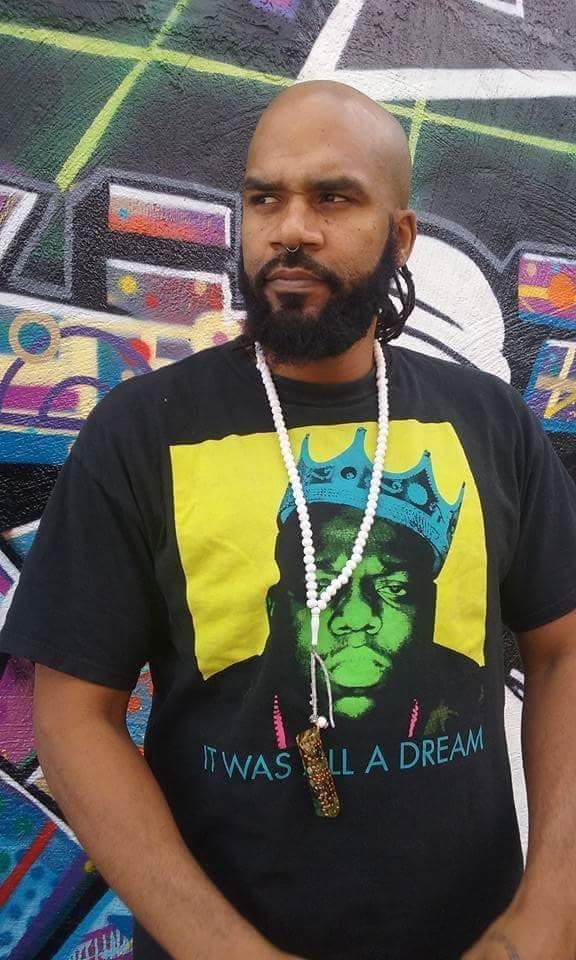
Abdul K. Wilkins a.k.a Duli Tha Beantown G.H.E.T.T.O (Gifted. Hearts. Equal. Towards. Total. Oneness) Shaman is a Boston Native...He grew up in the Inner City of Roxbury where he overcame an environment of gang street violence, neighborhood drug abuse, and police brutality! Duli was influenced at a young age by both of his parents in the interest of spirituality, mysticism, natural healing etc.
While attending College at Northeastern University he had a very mystical experience with psilocybin mushrooms and has been using mushrooms and other psychedelics as a tool for healing and conscious awareness ever since! He is a father of 2 and does massage therapy and natural healings in his community!
Kyle and Joe interview Robert Forte who has been around the psychedelic world for decades as a writer, facilitator and researcher. He has known or has worked with most of the biggest names in psychedelic history including Dr. Stanislav Grof and Timothy Leary among others.
The interview covers a lot of ground and will likely ruffle some feathers.
Robert has extensively studied the history of psychedelics and has drawn some conclusions about the origins of the field.
Psychedelics as Weapons
From the early days, scientists have been working with psychedelics to weaponize them. From project artichoke to MK Ultra, the US government and many foreign governments have spent a tremendous amount of effort researching these powerful compounds and likely still are.
Robert states that various governments particularly the United States government have groups that are using drugs to derange the public to make it easier for these groups to meet their desired outcomes - less democracy, increased plutocratic power, etc. Think Brave New World and Brave New World Revisitied.
Deranged from Miriam Webster:
- My leg was propped up on a library chair at the time, as it was too deranged to bend.
3: wildly odd or eccentric
He makes a compelling argument, but we want you the listener and reader to "Think for Yourself and Question Authority". That was a Leary line that we think is valuablein situations like this. Read books on the subject, question the purpose behind them, think critically and see where you want to go with it.
After recording this interview Joe Moore read the amazing and comprehensive 2016 history The Devil's Chessboard: Allen Dulles, the CIA, and the Rise of America's Secret Government. The book filled in some gaps for me (Joe) but didn't really change my mind much on the topic of psychedelics specifically.
Please enjoy the episode and if you want to discuss it, please join us at our facebook group here.
Links & Show Notes
- Colin Ross - Researcher Psychiatrist
- John Potash | Drugs as Weapons Against Us
- MK Ultra - https://en.wikipedia.org/wiki/Project_MKUltra
- Acid Hype -American News Media and the Psychedelic Experience (History of Communication)
- Henry Luce
- Theodore Shackley - CIA Officer
- Reinhard Galen
- Samuel Russell - Russell Trust opium \ skull and bones
- Brave new world revisited - https://www.huxley.net/bnw-revisited/
- Entheogens and the Future of Religion
- The Devil's Chessboard
- Allen Dulles
- 10 Global Businesses That Worked with the Nazis http://www.businesspundit.com/10-global-businesses-that-worked-with-the-nazis/2/
- JP Morgan Bank complicit in financial crimes in WWII
- The Politics of Heroin: CIA Complicity in the Global Drug Trade
- Mossad
- Israeli Mafia
- One Nation Under God: The Triumph of the Native American Church
- J. Tony Serra (born December 30, 1934) is an American civil rights lawyer, activist and tax resister from San Francisco - https://en.wikipedia.org/wiki/Tony_Serra
About Robert Forte
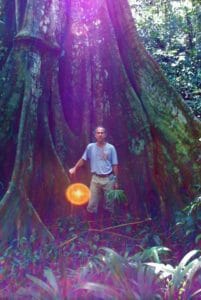
James Fadiman calls Robert Forte, “a major but not well known hero of the psychedelic movement.” A scholar, editor, publisher, professor, researcher of the subject for over 3 decades, Forte has come to some disturbing realizations about the psychedelic renaissance that he helped to start. Huston Smith called his first book, Entheogens and the Future of Religion, “the best single inquiry into the religious significance of chemically occasioned mystical experience that has yet appeared.” Forte was introduced to psychedelics in 1980 by Frank Barron, who initiated Timothy Leary and started the Harvard Psilocybin Project with him. From the University of California Forte was invited to Esalen to study with Stanislav Grof, before going to the University of Chicago to study the history and psychology of religion under Mircea Eliade. Over the years Forte has worked closely with many of the most prominent leaders of the psychedelic movement, including R. G. Wasson, Albert Hofmann, Timothy Leary, Ralph Metzner, Alexander Shulgin, Claudio Naranjo, and many others. His early MDMA research in 1981-85 turned on 100s of people to this new medicine. Though this project led to the creation of MAPS, Forte is a vocal critic of MAPS government collusion and deceptive policies. His second book is a rounded view of Timothy Leary, Outside Looking In: Appreciations, Castigations, Reminiscences. He first experienced ayahuasca in 1988, and conducted ayahuasca research with cancer patients in Peru, yet he is now suspicious of the globalizing of ayahuasca as an form of “spiritual colonialism.” He is a enthusiastic supporter of conscious, independent psychedelic healing and recreation, and an equally fierce opponent of psychedelics for mind control, profiteering, and social engineering by political and economic elites.
Episode Quotes
- I find mystical poetry to be an amazing aid in ceremony work.
- Is it the vision or the emotion that you feel and then the vision comes?
- In my work, the psychedelic experience is about going beyond the visionary state.
- The core of all creation is in the heart and breath.

Show Notes
- About Dr. Richard Grossman
- Has a long background in healing.
- He used to be a macrobiotic chef.
- Primeval meditations and licensed acupuncturist.
- Works with ayahuasca and San Pedro.
- How did Richard get involved in ayahuasca?
- A friend brought some up from Peru and his life changed in one night.
- It took him years as an acupuncturist learning more about healing.
- He’s been doing this for about thirty years.
- Do you integrate your acupuncture practice into ceremony?
- Not so much with ayahuasca - that’s done traditionally.
- He had a lot of experience with the Shipibo Tradition.
- With the San Pedro method, the body change happens in one day.
- Opinions on psychedelic visions.
- Many people want them and they’re a distraction.
- The real thing is that the source of everything is within.
- If a person can experience that for an instant, their life changes.
- There are a lot of things happening on subtle levels.
- The psychonaut and healing processes are quite different.
- What are some examples of ideas you’ve seen in the psychedelic community?
- People trying to draw in gods and goddesses.
- You need to see how deep a human being can go, it’s an infinite journey.
- What is it like to go deeper and deeper?
- If you can imagine a series of curtains parting over and over and over again.
- You begin to see places of illusion.
- During one of his trips, he visualized himself in a Nazi concentration camp.
- A voice told him to trust and forgive.
- He began to question what forgiveness and trust mean.
- Some people are seeking spirituality and not really healing within.
- Ayahuasca tourism is a fairly good thing, rather than people coming and ruining the jungle.
- How would you define a healing process?
- It’s a complex subject, he likes the idea of a series of concentric circles.
- Do you work with a person’s energy?
- People get very relaxed.
- If there is someone who can’t get relax he calms them with acupuncture.
- Do you think intoxicants affects the chi?
- San Pedro or ayahuasca are not considered intoxicants.
- He sees that ayahuasca is only good for the body.
- Psilocybin has a rough effect on the liver.
- The tannins in ayahuasca are valuable and bind toxins in the body.
- Do you have to worry about any cardiovascular problems?
- It is a stimulant so he screens people before doing the ceremony.
- Beauty is a healing process, beauty heals.
- Is there anything you’re excited about in the psychedelic world?
- When the community comes together to heal it’s powerful.
- We’re all going to a place of more love, peace, joy, and healing.
- What’s the outcome of thousands of people experiencing love and joy?
- What’s the ayahuasca ceremony structure?
- Constant music, keeping things from going totally wonky.
- There’s a point in the ceremony that it could go in either direction:
- Total group insanity or total group healing.
- Iowaska ceremonies can be dangerous.
- It’s something to be respected with its own spirit.
- You must hold close to the traditions of generations.
- There’s always a point during the ceremony where he feels it’s the most important and beautiful place he’s ever been.
- Drama’s not necessary, our culture wants the drama.
- We need to outgrow externalizing the blame.
- Life in our heart is meant to be enjoyed.
- Suffering to heal just doesn’t work.
- Culture seems to dwell on suffering, is that conditioning?
- The worst thing a human can possibly do is feeling guilty.
- "Guilt can’t fly and God wants you to fly."
- The nature of reality is joy and love.
- You need to be willing to let go of the things that don’t work.
- Psychedelics can be used as a guiding light.
- The worst thing a human can possibly do is feeling guilty.
- Any final advice, events?
- Find him on his website or on Facebook.
- Heartfeather.com - Dr. Richard Grossman’s website.
- Don’t stop, just keep going.
Sign up for our free course, "Introduction to Psychedelics"

About Richard Grossman, L.AC., O.M.D., Ph.D.
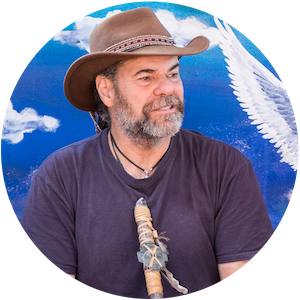 Richard Grossman studied Oriental Medicine at the California Acupuncture College in Los Angeles and received his post-graduate acupuncture training in Beijing, in a course sponsored by the World Health Organization and attended by physicians from around the world. He earned a Masters in Acupuncture, a Doctor of Oriental Medicine degree, a Ph.D. in Oriental Medicine, a Diplomat in Acupuncture, a Diplomat of Pain Management, and a Diplomat in Acupuncture Orthopedics.
Richard Grossman studied Oriental Medicine at the California Acupuncture College in Los Angeles and received his post-graduate acupuncture training in Beijing, in a course sponsored by the World Health Organization and attended by physicians from around the world. He earned a Masters in Acupuncture, a Doctor of Oriental Medicine degree, a Ph.D. in Oriental Medicine, a Diplomat in Acupuncture, a Diplomat of Pain Management, and a Diplomat in Acupuncture Orthopedics.
